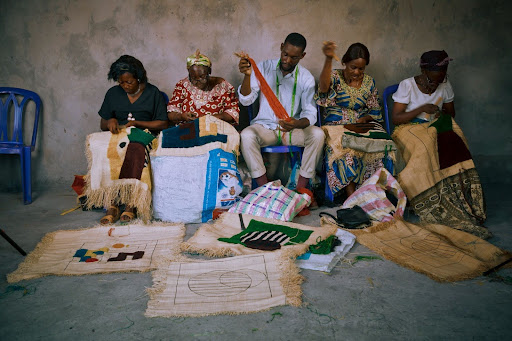
In the heart of Kinshasa, where the pulse of the city meets the echo of ancestral memory, a quiet revolution is unfolding — not with fanfare, but with fiber. In a modest workshop humming with laughter, looms, and purpose, Congolese women are weaving more than raffia. They are weaving futures. Identity. Power. And pride.
This is the spirit of Kilubukila — a cultural design house and social enterprise founded by Jess Kilubukila, a Congolese-French entrepreneur who left behind the high-rise world of finance in London to return to his roots and reimagine African living through design. What began as a personal quest for belonging and beauty has grown into a movement — one that empowers women, protects tradition, and redefines luxury on African terms.

From the Ground Up: A Story Born of Discontent and Determination
“I wasn’t trained as a designer,” Jess admits. “I started Kilubukila because I was bored, disconnected, and searching for something meaningful. Something that allowed me to use my hands and express my identity.” With a unique eye shaped by both Parisian modernism and Congolese heritage, Jess felt a void in the market — and in his life. He wanted his home to look like him — not like a colonial legacy dressed in neutrals. He envisioned a space where modern African aesthetics could be bold, beautiful, and true.
The first product? A French bistro chair covered in vibrant African wax print — a symbolic reclaiming of a European design staple. “It sounds silly now,” he says, “but it made sense at the time. I was taking something deeply Western and making it mine — making it African.”
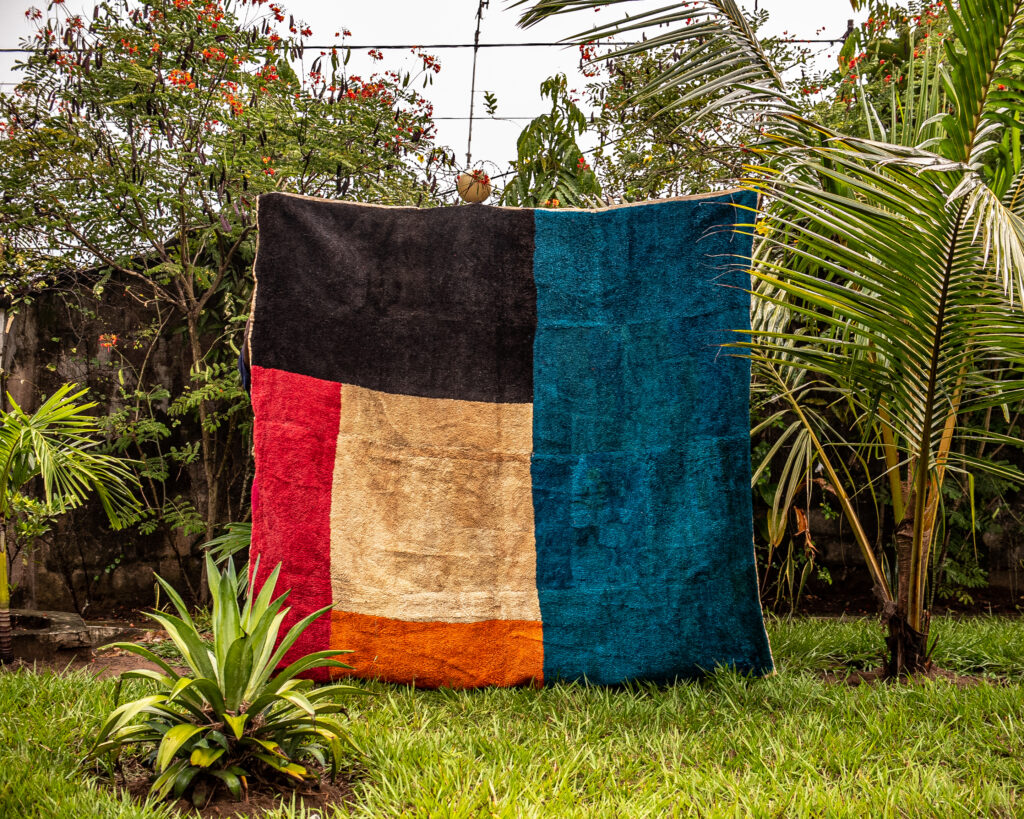
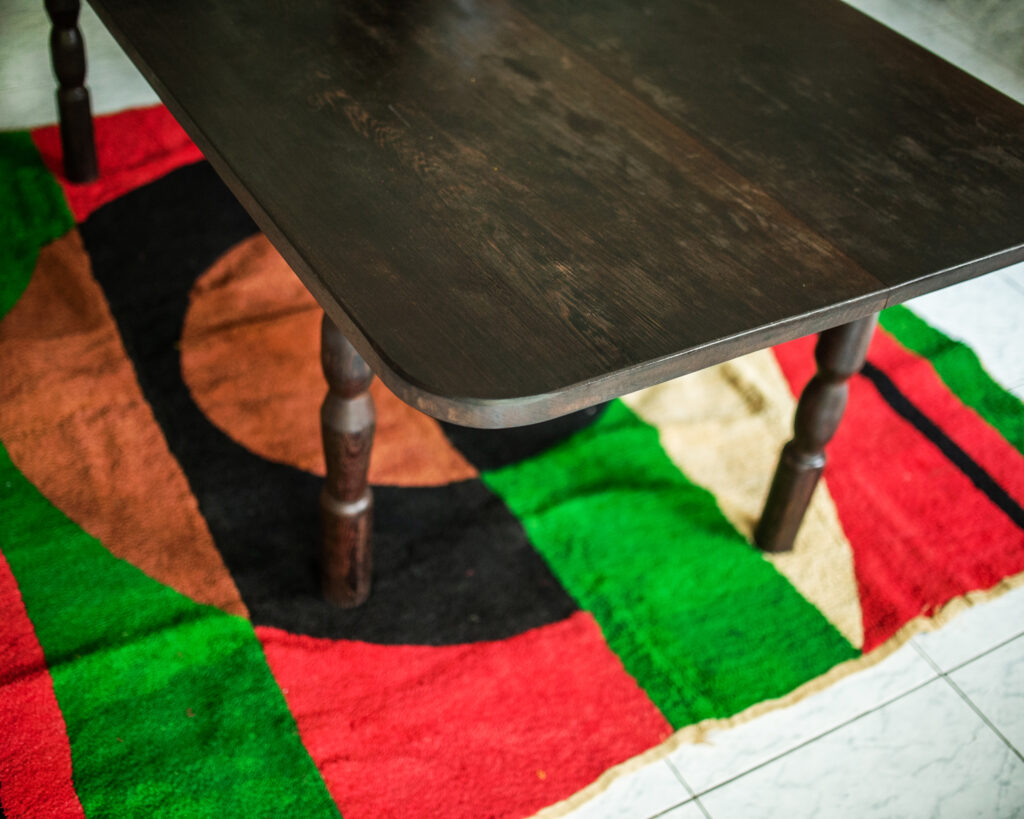
But as he sat with it longer — the prints, the chair, the gesture — questions began to rise. What fabric truly carried the story of Congo? What materials belonged not just to memory, but to soil? “I started looking into fabrics beyond wax — a textile that, despite its vibrant presence across Africa, has roots in Holland and isn’t originally ours, even if we’ve made it our own in the most joyful, unapologetic way.” Jess explains. “But I wanted something that was ours. Why not Kuba fabrics? It made sense. It’s Congolese. It’s ancestral. And deep down, I always felt the need to go back to Congo, to create jobs, to build something lasting — a legacy.”
That symbolic act — the chair wrapped in wax — had unlocked something deeper: not just a desire to create beautiful objects, but to ground beauty in belonging. He went searching for something more rooted — and found it in the intricate, centuries-old textile traditions of the Kuba people, where each strand of raffia tells a story, each motif holds memory. Here, in the rhythmic weaving of heritage, Kilubukila was truly born.
Weaving Heritage, Empowering Women
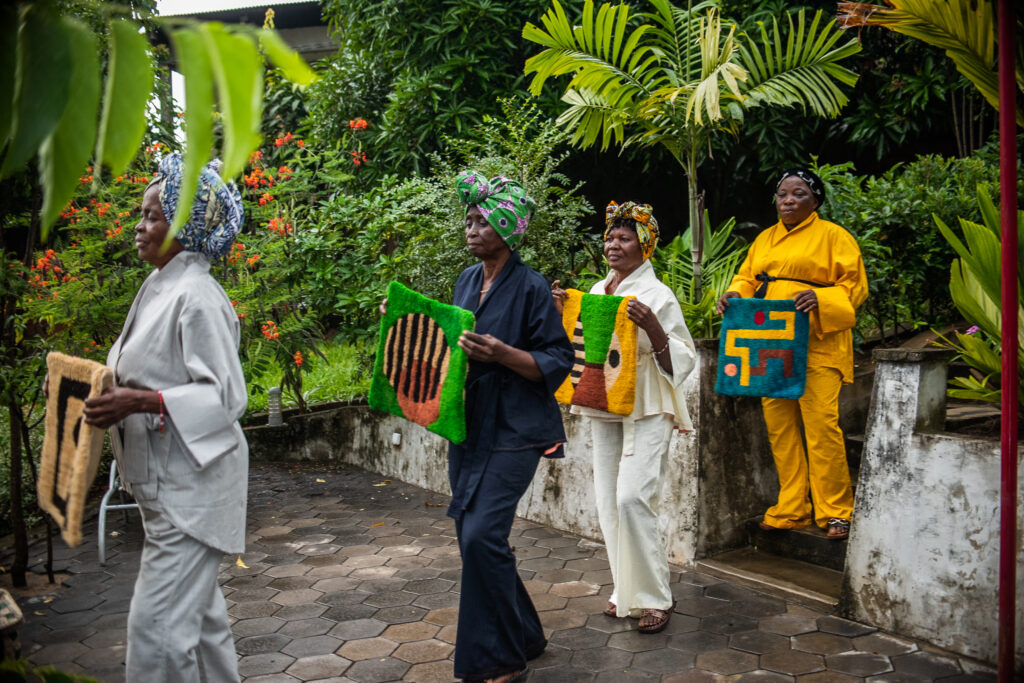
Kilubukila’s core is built on a simple but radical idea: that traditional crafts, when protected and reimagined, can be a force for economic freedom and cultural resilience. In collaboration with skilled women artisans in Kasai and Kinshasa, the brand produces exquisite handmade textiles — cushions, rugs, wall hangings — woven from 100% locally sourced raffia palm.
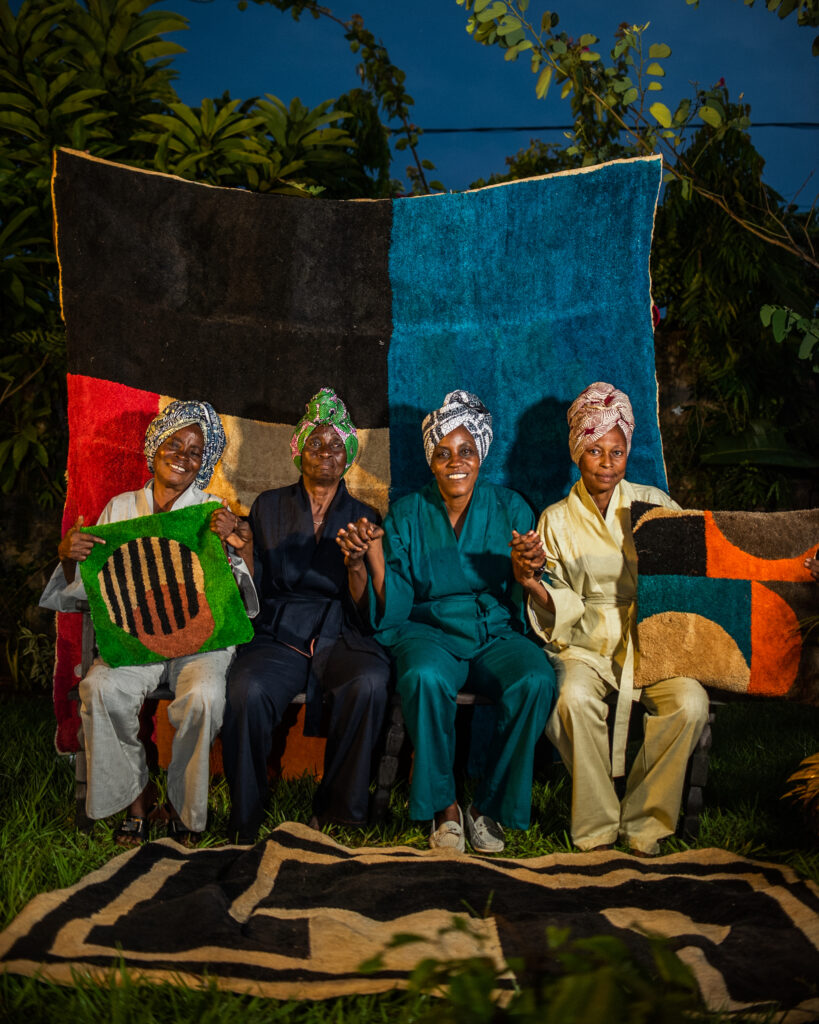
The process is slow, deliberate, and sacred. From harvesting raffia to natural dyeing with earth and botanicals, from meditative Kuba weaving techniques to collaborative design sessions between Jess and the artisans — every step honors the past while embracing the future.
“These women are not just workers. They are culture bearers, designers, storytellers,” Jess emphasizes. “We co-create. We share ideas. We build trust.” Every piece is signed by the artisan who made it, transforming each object into a living archive — a cultural artifact imbued with story, memory, and the unmistakable hand of its maker.

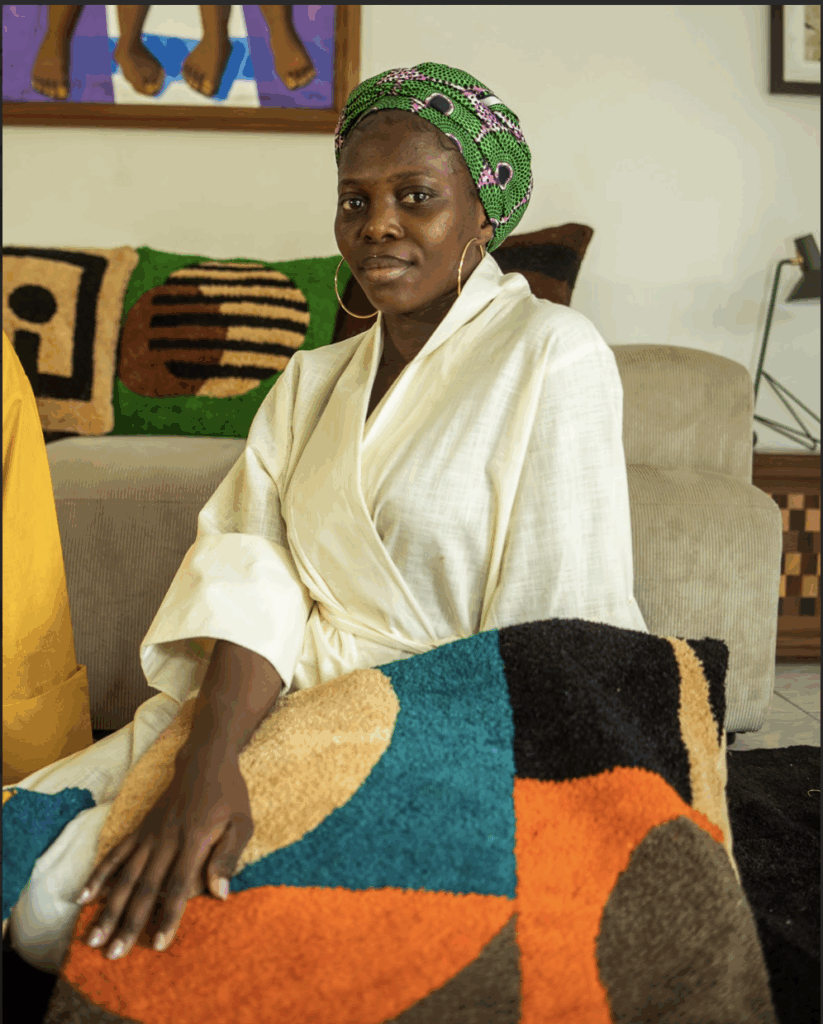
From Craft Workshop to Cultural Powerhouse
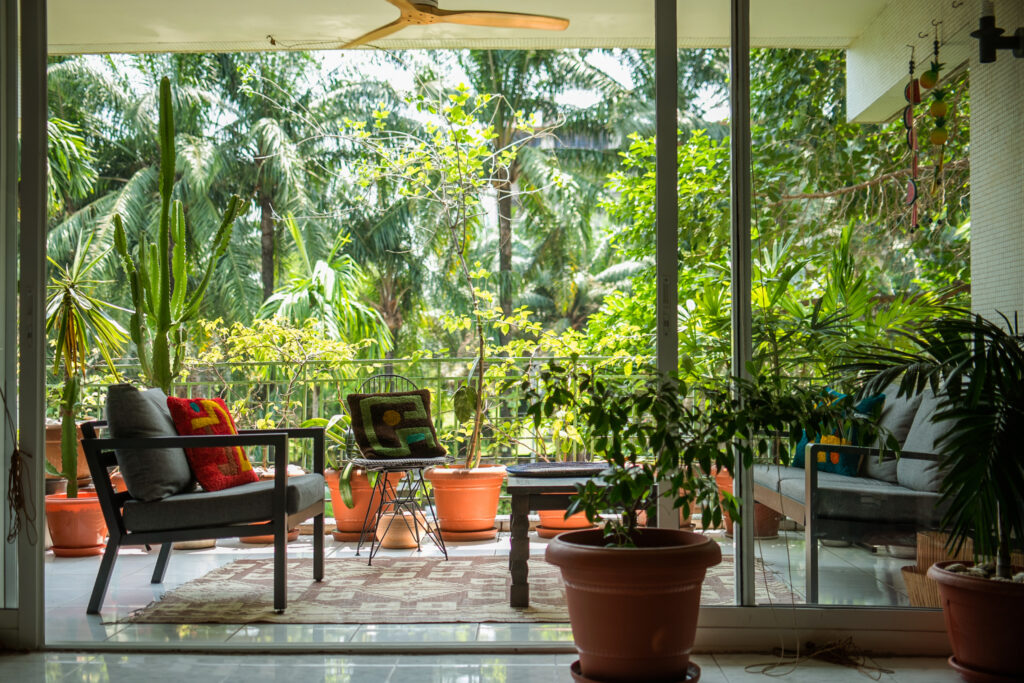
Thanks to early support from the UK Craft Council’s Crafting Futures program and the UNDP’s Business Call to Action, Kilubukila was able to formalize its training programs for women artisans. They now offer workshops in entrepreneurship, digital marketing, and product development — providing not just income, but long-term skills and business literacy.
The impact has been deeply personal. “One of our artisans told me she was finally able to put her children through school, just by weaving our cushions,” Jess shares. “That may sound small, but in Congo, that’s everything.”
From humble beginnings to international acclaim, Kilubukila has exhibited in Paris at Maison et Objet, collaborated with Monoprix, Comme des Garçons, and been featured in exhibitions from Lagos to New York. But Jess is quick to share the spotlight. “Every recognition is a shared win. It’s for the women, for Congo, for African artisans everywhere.”
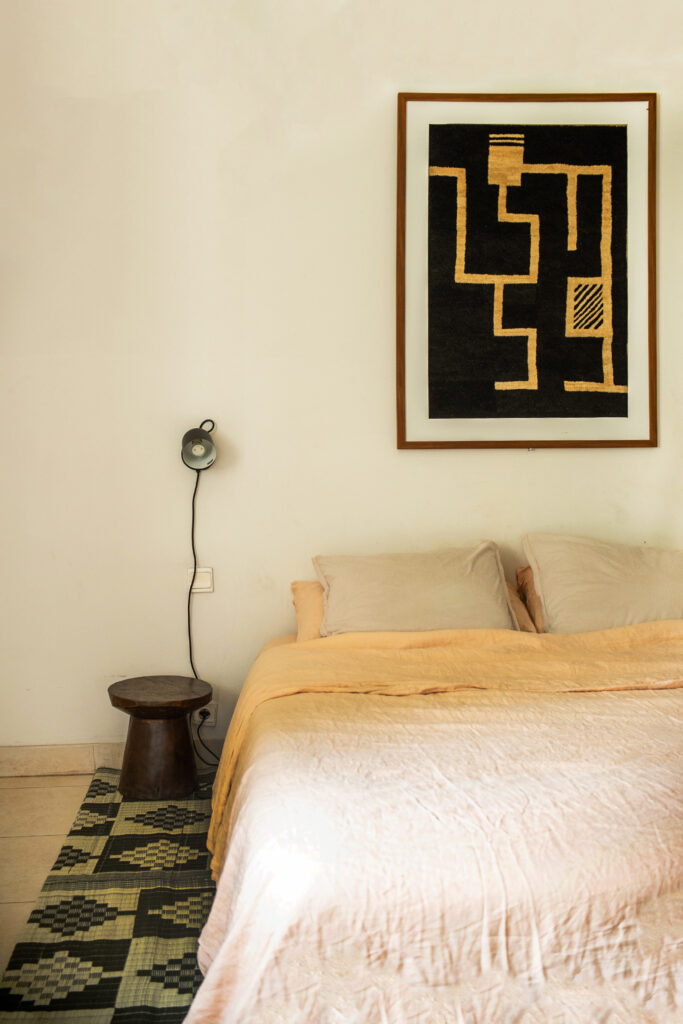
Luxury, Redefined
In a world obsessed with speed and scale, Kilubukila embraces slowness, meaning, and intimacy. “We are not trying to be the IKEA of Africa,” Jess says. “We are the opposite. Every product is made on order, every design is tailored to tell a story. Just like you’d go to a seamstress for a custom garment, or a carpenter for a handmade chair — this is the African way. And it’s something to be proud of.”
This ethos is driving Kilubukila’s evolution from craft label to full-fledged lifestyle brand — one rooted in quiet luxury, cultural authenticity, and sustainable values. “We’re showing that African design isn’t derivative or exotic. It’s powerful, sophisticated, and worthy of global recognition.”
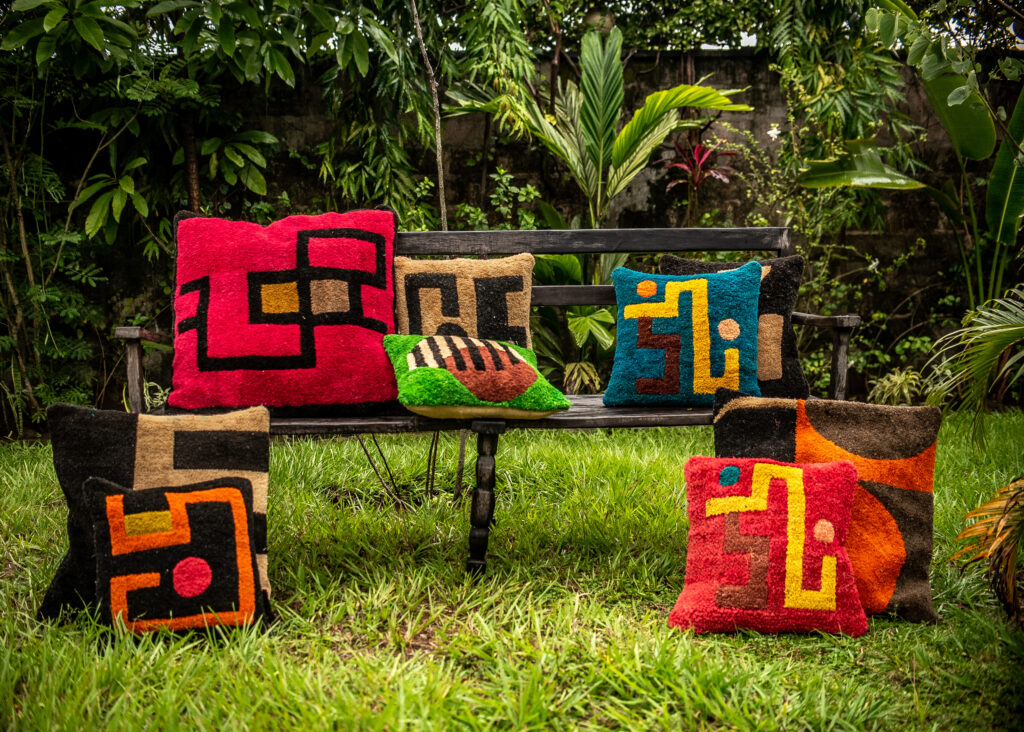
Mandombe: The Script of Resistance and Reconnection
The spirit of cultural reclamation runs through every detail — even the brand’s visual language. Many Kilubukila designs draw from the Mandombe script, a pan-African writing system developed as an act of resistance and cultural reconnection. With its bold lines and rhythmic geometry, Mandombe becomes both motif and metaphor — a script of self-determination woven into the brand’s DNA.
“It’s not just about aesthetics,” Jess explains. “It’s about reclaiming knowledge. Owning our story. Designing our future.”
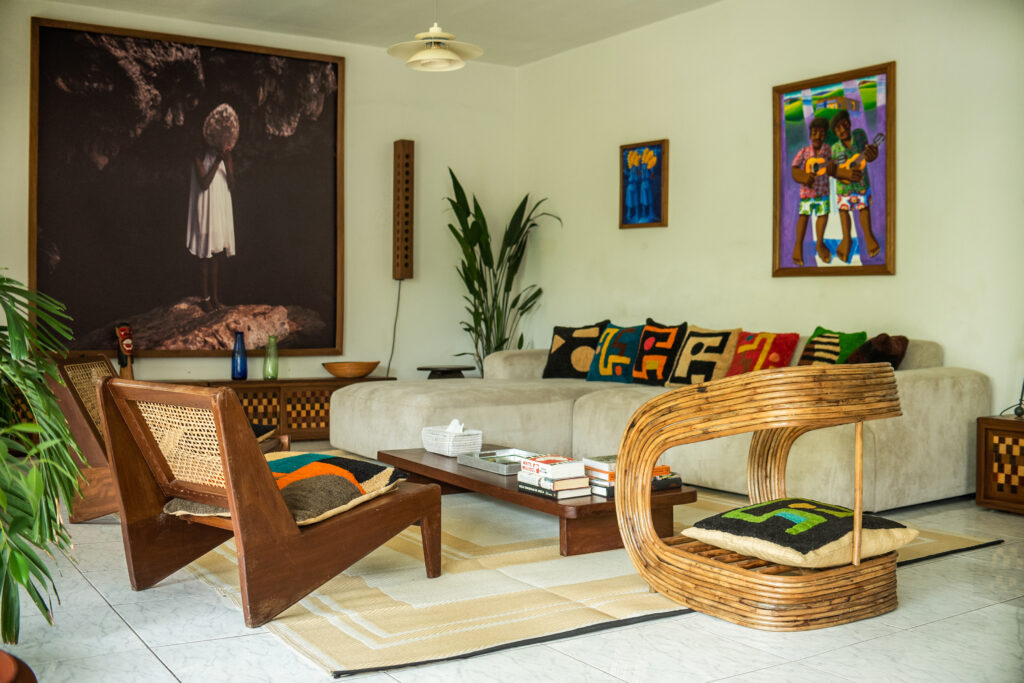
Looking Forward: The Home as Sanctuary, the Brand as Movement
At its heart, Kilubukila believes in one powerful idea: that your home should look and feel like you — your roots, your values, your aspirations. “We want to give people — especially Africans — the tools to express their identity with pride,” says Jess. “Through handmade objects. Through heritage. Through beauty.”
That mission is expanding. As the brand matures, it is exploring new frontiers in design, sustainability, and storytelling — always grounded in the belief that true luxury lies in meaning, connection, and care.
And with each cushion stitched, each rug woven, each woman empowered — Kilubukila is not just decorating homes. It’s decorating history.
Established: 2017
Founder: Jess Kilubukila
Base: Kinshasa, DRC
Artisan Partners: 50+ women artisans
Production Sites: Kinshasa & Kasai
Materials: 100% raffia palm, dyed naturally
Key Exhibitions: Maison & Objet (Paris), Les Arts Décoratifs (Paris), Alára (Lagos), NYC showings
Notable Collaborations: Monoprix, Comme des Garçons, Maison Chateaux Rouge
Supporters: UK Craft Council, UNDP Business Call to Action